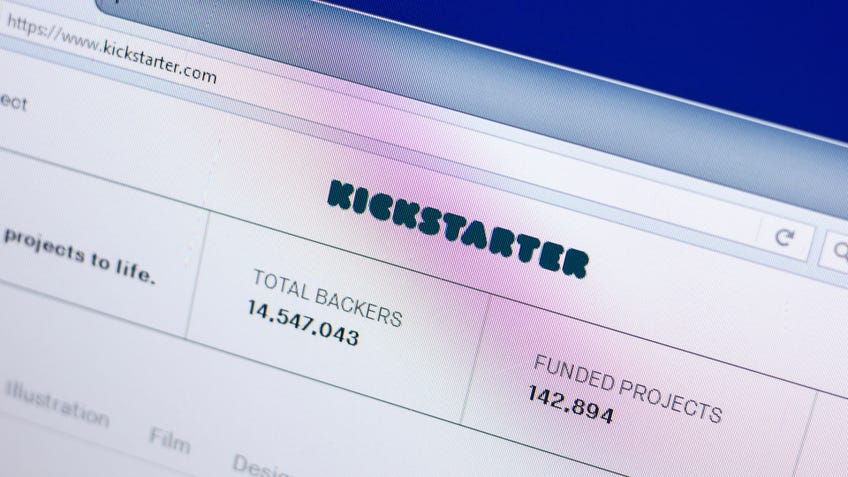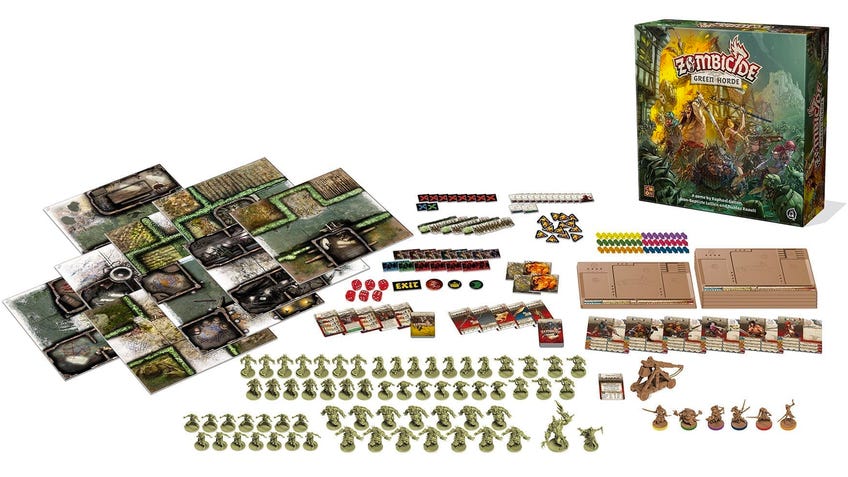Like video games, big tabletop games are demanding more and more from players - and it’s harming the hobby
More money, more stuff, less fun.
Tabletop gaming is increasingly no longer a one-box hobby. Whether it’s the latest Kickstarter board game replete with endless expansions, the next set in Magic: The Gathering’s relentless release cycle or yet another supplement for Dungeons & Dragons 5E, every major game wants to be The One Game that you invest every minute and penny into.
Forget breaking a game out of the cupboard to fill an hour on a rainy Sunday; setting up your next session can now become a day-long exercise in unpacking half-a-dozen boxes, filtering through a flood of components and trying to work out what you actually need to play, before you even get to reading the rulebook.
It’s exhausting, especially when - as any D&D DM knows - simply getting enough people around a table and teaching them the rules can be a task in itself. That’s a job made increasingly more difficult by the trend of breaking crowdfunded games across a number of stretch goals, add-ons and other modular bits and bobs. Whether you actually need to play with them or not, facing a mound of card and plastic turns the thrill of cracking open a box into intimidating pre-game admin.

In the very worst cases (though fortunately increasingly rare as publishers wise up), this Kickstarter-fication can even lead to players missing out on some of the best parts of a game that have been reserved for a separate expansion or stretch goal, some of which are never offered afterwards beyond overpriced eBay listings. If you didn’t cough up enough money during its initial campaign, you might be chit out of luck.
If you don't cough up enough money during a crowdfunding campaign, you might be chit out of luck.
It feels akin to the world of blockbuster video games, where ‘live service’ experiences demand dozens of hours from players to keep up with a continuous stream of new content. Like a Netflix show, video games such as Fortnite have begun to work in ‘seasons’, each stocked with a fresh load of things to do, time-limited events and ways to spend money every few months. Fall behind, and it’s often hard to catch back up.
Long favoured by the constant set rotation of trading card games like Magic: The Gathering, it’s a format we’re now even seeing the likes of Dungeons & Dragons adopt in its planned transformation into ‘One D&D’, with the storied RPG seemingly dropping numbered editions in favour of a rolling, ever-evolving game just called D&D.
Even games that don’t launch through Kickstarter can fall prey to a “bigger is better” philosophy, cramming every inch of a box with miniatures, flashy components and additional rules to deliver the feeling of a premium experience - at a premium price.
This isn’t true of every game, of course. Like the thriving indie video game scene, there are still plenty of smaller tabletop games perfectly content with offering a complete, focused experience in a single box or book - often with some of the most innovative or exciting ideas inside. But it increasingly feels like those aren’t the games that capture millions of dollars on Kickstarter or garner forums’ worth of discussion. For the most part, they remain hidden gems buried beneath the latest pile of plastic miniatures, established designer names, rulebooks thick enough to break a window and recognisable movie, video game or comic book licences.
This makes it hard for newcomers to the hobby to know where to start. How can you know if a game is worth your time and money when it costs so much of both to even give it a go?

Board games are different to video games; learning a brand new ruleset can feel like the equivalent of setting up a whole new console for every game you play. What’s more, even those video games that demand hours of play to get to grips with are often free-to-play - something that physical tabletop games can’t use to balance the time investment required.
Learning a brand new ruleset is like setting up a whole new console for every video game you play.
Outside of being lucky enough to have a local board game café with the game in stock (unlikely before a Kickstarter), the chance to play a demo at conventions - which can be just as pricey to attend - or digital versions on apps such as Tabletop Simulator (if the publisher even offers one) there often aren’t many accessible ways to get a taster of an upcoming tabletop title - especially when the window to decide is so short.
For these reasons, it’s understandable that people find comfort in the things they already know how to play, whether it’s D&D 5E or the familiar dice-chucking of a dungeon-crawler. There’s nothing wrong with enjoying more of the thing you enjoy, and no-one has the time or money to buy and play everything. Treating yourself to expansions, premium components or the deluxe edition for a game you adore is all very well - as long as the initial barrier to entry doesn’t stop anyone else from discovering the game. After all, sharing the experience is central to tabletop gaming.
The problem is when that enjoyable thing comes at such a steep cost for even the base experience - often fuelled by the fear of missing out if you don’t jump on a Kickstarter campaign during its limited window - and demands so much time that playing anything else becomes difficult.
When that’s the case, it becomes harder to be excited by some of the amazing gameplay experiences emerging from the hobby today. Rather than spending time playing games, that same time is now often spent trying to work out if your next purchase is simply going to be worth the price of entry.
Lowering every possible barrier to this hobby is vital to throwing open the doors to everyone. While the biggest titles continue to demand time, space and money that most people just don’t have, blockbuster tabletop gaming will continue to fail at one of its greatest gifts: bringing people together.


